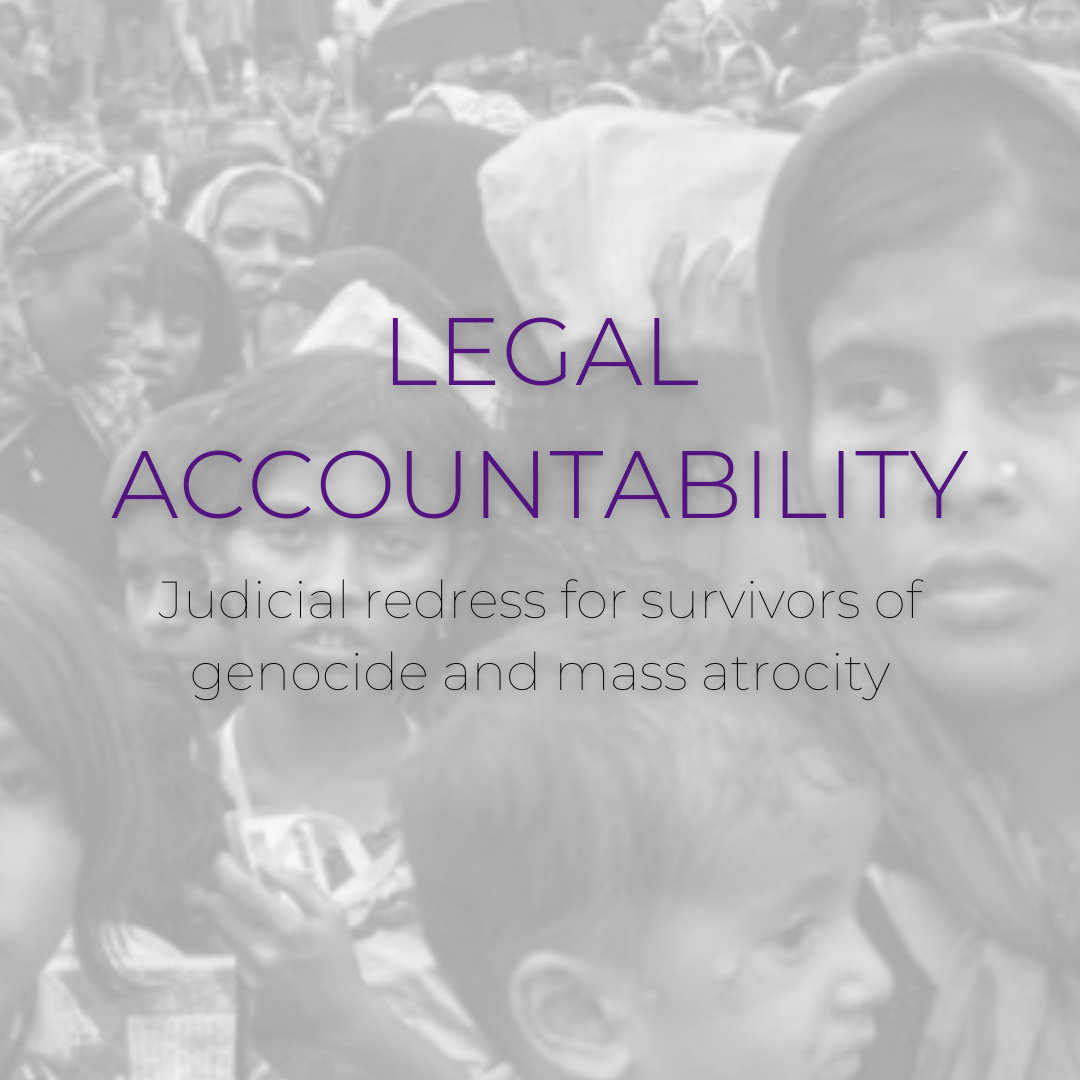Judicial Redress for Survivors of Genocide and Mass Atrocity

The Promise Institute for Human Rights and Jewish World Watch took a deep dive into the judicial mechanisms supporting survivors of genocide and mass atrocities – how they help create a record of what happened, what types of relief they provide and what role survivors play in the respective processes. Drawing on the experiences of Theary Seng, activist, author and survivor of the Khmer Rouge massacres, and Tun Khin, leading Rohingya activist, this panel examined civil and criminal mechanisms for holding perpetrators of mass atrocities to account.
About the panelists:
Tun Khin is current President of Burmese Rohingya Organisation UK which has been a leading voice for Rohingya people around the world. Tun Khin has briefed officials on the continuing human rights violations committed against Rohingya populations at the US Congress and State Department, British Parliament, Swedish Parliament, European Union Parliament and Commission, the UN Indigenous Forum in NY and the UN Human Rights Council in Geneva. He wrote articles in British independent newspaper, Democratic Voice of Burma and Mizzima Burmese Medias. Tun Khin has been a featured speaker on Rohingya’s rights for the BBC, Sky, Al Jazeera, and many other outlets. He has also published opinion pieces in the Huffington Post, Democratic Voice of Burma and Mizzima Burmese Medias. Tun Khin received a leadership award from Refuges International, Washington DC in April 2015 for his work on the Rohingya issue.
Theary C. Seng is the founding president of CIVICUS: Center for Cambodian Civic Education, a local Cambodian NGO. The admixture of her personal history, US education in law and politics, status as first-recognized civil party in international law, and broad platform as an outspoken civil society leader and opinion maker allows Theary to better engage the Cambodian public on issues of truth, justice and reconciliation. Theary was born in Phnom Penh, probably in January 1971. Under the Khmer Rouge, she lived in Svay Rieng province bordering Vietnam, where the killings were most intense and where she spent five months in Boeung Rei prison. The Khmer Rouge killed both her parents. She and her surviving family trekked across the border into Thailand in Nov. 1979 and emigrated to the U.S. one year later. Theary returned to Cambodia for the first time in 1995 and has since called it home again.
Cathy Sweetser is Deputy Director of the Promise Institute for Human Rights, and Director of the Human Rights Litigation Clinic at UCLA School of Law. Her primary research and teaching interests are international human rights law, global administrative law, and corporate and government accountability for international law and constitutional violations. She was previously a Partner and is currently of counsel at Schonbrun, Seplow, Harris, Hoffman & Zeldes LLP where she litigates cases concerning human rights and civil rights. In particular, she has litigated cases under the Alien Tort Statute and the Trafficking Victims Protection Act, and other matters concerning corporate accountability, police misconduct, conditions of detention, and international and constitutional law violations. Prior to joining SSHH LLP, she practiced at Altshuler Berzon LLP in San Francisco.
John Packer is Director of the Human Rights Research and Education Centre and Neuberger-Jesin Professor of International Conflict Resolution in the Faculty of Law at the University of Ottawa. He previously taught at the Fletcher School (Tufts University, USA) and the University of Essex (UK), held Fellowships at Cambridge and Harvard Universities, and has lectured at academic and professional institutions around the world. Over his 30-year career, he held positions in inter-governmental organisations for 20 years (UNHCR, ILO, OHCHR, OSCE, UNDPA) and has advised numerous governments, communities and other actors in over fifty countries. From 1994 to 2004, he was Senior Legal Adviser then the first Director of the Office of the OSCE High Commissioner on National Minorities. In 2012-2014, he was the Constitutions and Process Design Expert on the UN’s Standby Team of Mediation Experts. The focus of his research and practice is at the inter-section of human rights (including minority rights) and security, notably conflict prevention and quiet diplomacy, international mediation, transitional arrangements, and institutional developments at domestic and multilateral levels.



